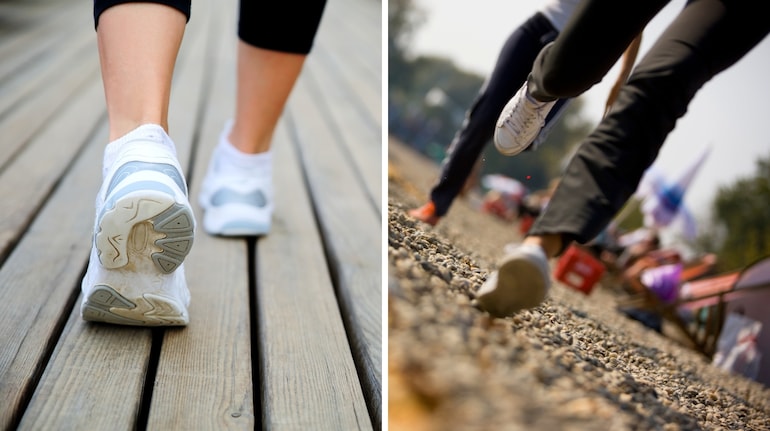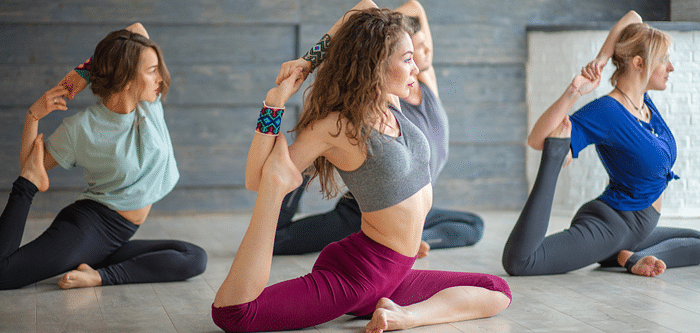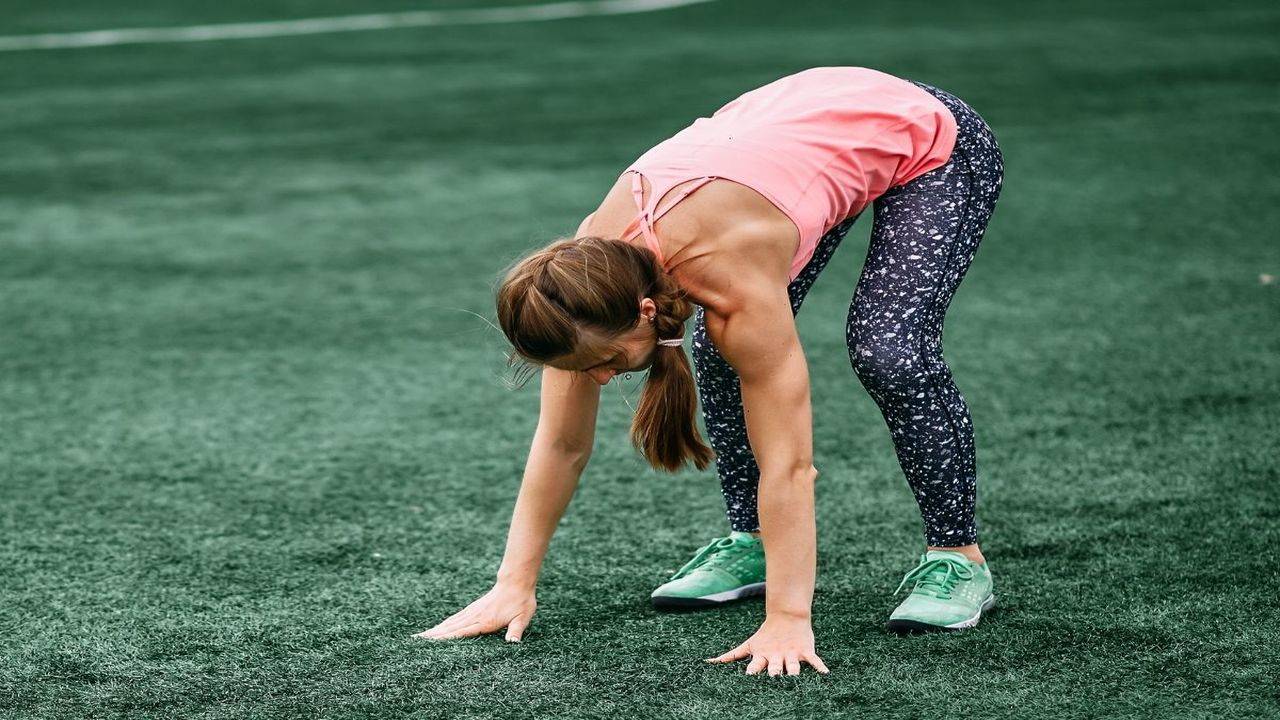We all know we should move our bodies more. But when it comes to picking how, the debate always pops up—should you walk or run? Some people swear by pounding the pavement in their running shoes, chasing that runner’s high. Others say, “Forget sweating buckets—I’ll stick to a peaceful walk around the block.”
So which one’s actually better for your health? The answer isn’t black-and-white. It really depends on your body, goals, and what you’ll actually stick with when the weather’s bad and motivation dips.
Let’s break down the pros and cons, side by side, so you can figure out what’s best for you. No fitness-guru talk here—just real-life stuff you can use.
Why This Question Matters
First, it’s worth saying—both walking and running are great for you. Anything that gets you off the couch and moving is a win. Both help you:
- Burn calories
- Strengthen your heart
- Improve your mood
- Sleep better
- Reduce stress
But they do it in slightly different ways.
Walking: The Underrated Hero
Walking gets a bad rap because it feels “too easy.” But don’t be fooled—walking regularly packs a punch.
What Walking Does for Your Health:
- Boosts Heart Health: A brisk walk helps lower blood pressure and bad cholesterol. It’s gentle on your ticker but still keeps it strong.
- Protects Your Joints: Walking is low-impact. If you have knee or hip pain, it won’t hammer your joints the way running sometimes can.
- Helps You Stay Consistent: Walking is easy to stick with. It doesn’t require fancy gear or a shower afterward. You can walk with a friend, your dog, or while listening to your favorite podcast.
- Supports Weight Loss (Yes, Really!): People think walking won’t help them lose weight—but it can. If you walk briskly for 30–60 minutes daily and pair it with decent eating habits, you’ll see results.
Running: The Calorie-Blaster
Running is walking’s more intense cousin. It pushes your heart, lungs, and legs harder—and that can bring extra benefits, if your body can handle it.
What Running Does for Your Health:
- Burns More Calories, Faster: Minute for minute, running burns about double the calories of walking. If you’re short on time and want a big burn, running does it.
- Strengthens Bones: Running is weight-bearing and more intense, so it can help increase bone density better than walking.
- Boosts Cardio Fitness Quickly: Because it raises your heart rate fast, running trains your heart and lungs to work harder and recover faster.
- May Improve Mental Health: Many runners swear by that “runner’s high”—the rush of endorphins that comes after a good jog.
How Many Calories Do You Really Burn?
Let’s get specific. Say you weigh 160 pounds:
- Walking briskly (4 mph): You’ll burn around 250–300 calories per hour.
- Running (6 mph): You’ll burn about 600 calories per hour.
Big difference, right? But here’s the catch: running is harder to sustain for long stretches if you’re not used to it. Many people can easily walk an hour—but can’t (or won’t) run for an hour. So walking longer can equal out that burn.
Which Is Easier On Your Body?
Walking wins here, hands down. Running is harder on your joints—especially if you run on concrete, wear old shoes, or ramp up mileage too fast. Common running injuries include:
- Runner’s knee
- Shin splints
- Stress fractures
Walking injuries? Not so much—unless you’re tripping over a curb.
Which Is Better for Losing Belly Fat?
Sorry to burst your bubble, but neither walking nor running can spot reduce belly fat. Fat loss comes down to burning more calories than you eat. Running burns more calories faster, so in theory it can help you shed pounds quicker. But lots of people overestimate how many calories they burn running—and eat them all back at dinner.
Walking burns fewer calories but is easier to do daily. And daily movement is what really keeps weight off for good.
Which Is Better for Mental Health?
Both work wonders. A steady walk can clear your mind and reduce stress hormones. Some people find it almost meditative—especially outdoors. Running can do the same, but more intensely. The so-called runner’s high is real for many, thanks to endorphins and a sense of accomplishment.
Who Should Be Careful With Running?
Running isn’t for everyone—at least not every day. You should be cautious if you:
- Have joint problems or arthritis
- Are recovering from injury
- Are overweight and new to exercise (start with walking first)
- Have heart issues—always check with your doctor
If running hurts, listen to your body. Walking is not “less than”—it’s smart.
Can You Do Both? Absolutely!
Here’s a secret: you don’t have to pick one. Mixing both can keep you fit and motivated. For example:
- Run 2–3 times a week for cardio and intensity.
- Walk on rest days for recovery and extra calorie burn.
- Do “walk-run” intervals—run for 2 minutes, walk for 2 minutes.
This mix keeps your joints happy and boredom at bay.
How to Get the Most Out of Either
Whether you’re walking or running:
- Wear good shoes that fit. Don’t cheap out here.
- Warm up and cool down. Stretch a little after.
- Stay hydrated, especially on hot days.
- Listen to your body. Rest if you feel real pain (not just normal soreness).
The Bottom Line: Which Should You Choose?
Here’s the real truth: the best workout is the one you’ll actually do.
- If you love feeling the wind on your face and pushing your limits, run.
- If you love chatting with a friend while moving, or walking your dog while listening to music, walk.
- If your knees hate running, don’t force it. Walk faster or longer.
- If you want the best of both worlds, mix them up.
Consistency beats intensity every time. 30 minutes of walking daily will always beat a single heroic run you do once every three weeks.
Final Thoughts
Walking or running—both are good, both work, and both can change your body and your mind. Forget the debate. Just pick what fits your mood, your body, and your life.
Lace up your shoes, step outside, and do what feels right today. Run if you want. Walk if you’d rather. Just move—your heart, mind, and future self will thank you.










